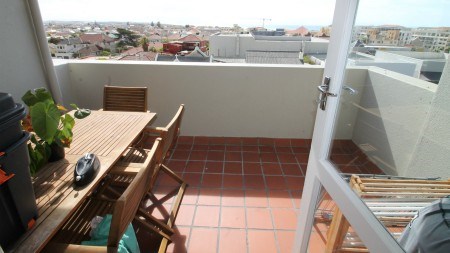Johannesburg's rental market has seen a significant shift in demand as the economic downturn makes it increasingly challenging for cash-strapped South Africans.
Numerous economic and geographic dynamics have created a year-on-year downturn in Johannesburg’s property rental market in 2016, taking its toll on the province’s economy and precipitating notable market shifts.
The major causes of the slump in earnings derived from investment properties have been spiralling consumer inflation resulting in ever-shrinking household budgets, a gloomy national economic outlook and the highest unemployment levels in more than a decade, exacerbated by unabated semigration to the Western Cape.
This is according to Shaun Groves, Gauteng Rental Manager for Lew Geffen Sotheby’s International Realty, who says the most notable market adjustment has been the abrupt about-turn in consumer property preferences with a sharp decline in demand for homes that previously enjoyed centre stage and offered the best returns.
“The seemingly insatiable appetite for apartments in Sandton’s CBD has dwindled as a result of rampant development and oversupply, which is being echoed in other northern suburbs, particularly, as last year’s considerable demand for high-end apartments has cooled. And in some suburbs that have traditionally been affordable and family oriented, free-standing homes are now proving increasingly difficult to let.”
He adds that correctly priced homes in cluster developments and security estates have seen the least decline in demand.
The rental markets in the Parks, however, appear to be operating independently from the general Gauteng market, with a continued status quo of high demand and low stock in these conveniently situated, sought-after suburbs.
“Parkhurst, especially, is somewhat of an anomaly with its unwavering gross yield of around 9%, which is largely due to the suburbs distinctive cachet and lifestyle appeal that has long been recognised across multiple demographics.
“In fact, it is one of very few suburbs that even buyers who are downsizing from stately homes on generous grounds in neighbouring areas still perceive as exclusive and well matched to their lifestyles.”
Payprop’s Rental Index Report at the end of the third quarter of 2016 reflects a meagre growth of 4.8% for the Gauteng rental market since the beginning of the year – considerably lower than the 6.4% national average and disheartening for a province that has historically provided stable growth of around 8%.
Lew Geffen, Chairman of Lew Geffen Sotheby’s International Realty, cautions: “While the national statistics are skewed by the almost excessively buoyant Western Cape rental market that’s running at year-on-year growth of 9.32%, there is still a rocky road ahead for beleaguered investors in Gauteng, especially those who haven’t geographically diversified their portfolios.
“I predict that the current socio-economic climate will not only continue to influence a depressed market well into 2017, but also tighten its grip on already cash-strapped consumers who will be increasingly susceptible to defaulting on payments as their limited financial wiggle room shrinks even further.
“This is clearly evidenced by Payprop data, which reveals that Gauteng tenants currently owe on average 40% of their pre-tax income to credit providers compared to 33% in March last year. The increased debt load is largely due to the fact that they have more store accounts and credit cards than their counterparts in other provinces.”
However, while the immediate forecast may not inspire confidence, Groves says it’s certainly not all doom and gloom and that investors who realistically adjust their expectations and make a concerted effort to meet tenants’ needs should be able to weather the current slump without taking too much of a knock on returns.
“The fact remains that everyone needs a home to call their own and correctly priced properties will therefore always have a market, even if it takes a little longer to find a tenant.
“And in the current market, savvy landlords realise that in order to find reliable tenants it’s essential to cater to their priorities. To this end, homes with excellent security will always be favoured, as will pet-friendly properties that are an increasingly scarce commodity.”
Groves concludes: “The key factor to successful property rental remains the quality of the tenant you place and in the current economic climate it is crucial to do the necessary due diligence to minimise the risks.
“An established agency will perform thorough credit checks on all prospective tenants as well as monitor successful applicants’ long term credit profiles. And with a comprehensive understanding of the numerous layers of legislation governing the industry, agencies will always be best qualified to deal with any tenant issues that may arise.”







